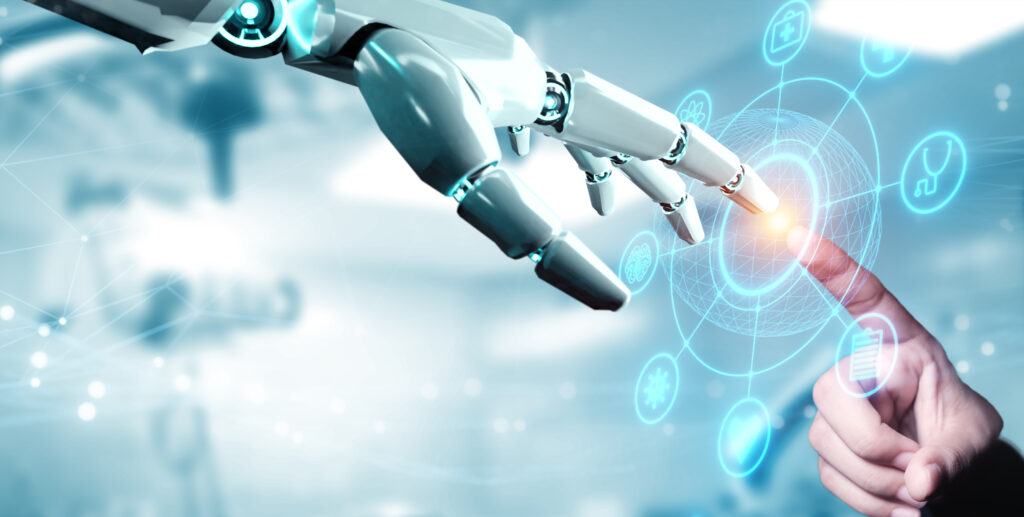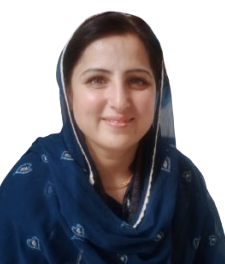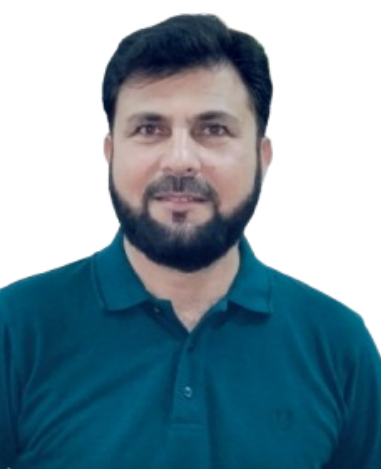Workshop - 6
Hands-on Workshop on
Med-Intelligence: Transformative role of Artificial Intelligence in Healthcare

1. Introduction
The Med-Intelligence: Hands-on Workshop on Transformative Role of Artificial Intelligence in Healthcare at FHCC 2025 will provide healthcare professionals, researchers, and students with practical exposure to state-of-the-art AI technologies and their applications in diagnostics, treatment, and patient care. This two-day intensive workshop will cover both predictive AI models (YOLO, CNNs, Transformers) and generative AI techniques (Diffusion Models, Vision-Language Models, Multimodal AI).
Participants will learn how to prepare and process medical imaging datasets, build AI models for disease detection and risk prediction, and explore how generative approaches can enhance data augmentation, medical training, and patient care simulations. By integrating hands-on sessions with expert discussion sessions, the workshop will equip participants with the knowledge and technical skills to apply AI tools across healthcare disciplines, supporting FHCC 2025’s vision of “Igniting Ideas – Reshaping Healthcare”.
Healthcare systems worldwide are facing unprecedented challenges like rising patient volumes, increasing complexity of diseases, and the need for precision-driven care. At the same time, advances in Artificial Intelligence (AI) are creating powerful opportunities to transform how healthcare is delivered, taught, and experienced. From automating diagnostics to enabling personalized treatment and enhancing medical education, AI is rapidly becoming an indispensable partner in modern healthcare.
Predictive AI models such as Convolutional Neural Networks (CNNs), YOLO, and Transformers have already demonstrated their value in medical imaging, pathology, and patient risk stratification. Looking ahead, Generative AI, Diffusion Models, and Vision-Language Models (VLMs) are unlocking new horizons, ranging from synthetic data generation and multimodal analysis to medical report automation and interactive clinical decision support.
This workshop is designed to bridge the gap between cutting-edge AI research and practical healthcare applications. By engaging participants in both conceptual learning and hands-on practice with medical datasets, it empowers healthcare professionals, students, and researchers to adopt AI tools in diagnostics, treatment, patient care, and innovation. The program builds on our team’s experience of conducting successful AI workshops nationally and internationally, ensuring participants gain not only theoretical knowledge but also the confidence to implement AI-driven solutions in their domains.
2. Objectives
- Introduce participants to modern AI frameworks for medical imaging and predictive analytics.
- Provide hands-on training in applying CNNs, YOLO, and Transformers to medical datasets.
- Explore generative approaches (Diffusion Models, GenAI) for medical dataset augmentation and simulation.
- Demonstrate the use of Vision-Language Models (VLMs) for report generation, multimodal reasoning, and medical education.
- Foster cross-disciplinary collaboration between healthcare professionals, researchers, and AI practitioners.
3. Workshop Structure and Schedule:
Day 1: Predictive AI Models in Healthcare
Morning Session: Technical Talks and Presentations
- AI in Healthcare: Opportunities and Challenges.
- Predictive Modeling in Medicine:
- Applications of YOLO for medical image detection and classification tasks.
- Role of Convolutional Neural Networks (CNNs) in identifying diseases from radiographs and clinical images.
- Application of Transformer Models for predictive analytics in medical treatment planning and patient risk assessment.
Afternoon Session: Hands-On Practical Session
- Hands-on: Setting up AI environment (Python, TensorFlow, PyTorch).
- Dataset preparation (radiology, histopathology, and public healthcare datasets).
- Training YOLO & CNNs on sample medical datasets.
- Transformer-based prediction exercise.
Day 2: Generative and Multimodal AI in Healthcare
Morning Session: Technical Talks and Presentations
- Introduction to Generative AI and Diffusion Models: Understanding the concepts of GenAI and Diffusion Models.
- Overview of popular architectures (e.g., DALL-E, Stable Diffusion) and their working principles.
- Vision-Language Models (VLMs): Bridging medical images and clinical text.
Afternoon Session (1:00 PM – 4:00 PM): Hands-On Practical Session
- Hands-on: Generating synthetic medical images with diffusion models.
- Using VLMs for automated report generation and multimodal QA.
- Ethical and regulatory considerations in clinical AI adoption.
- Open discussion: The future of AI-powered healthcare.
4. Target Audience
- Workshop participation certificates.
- Access to training materials (slides, codes, datasets).
- Working demo models and sample codes for continued practice.
- Networking with international AI and healthcare experts.
5. Expected Outcomes
- Enhanced knowledge of AI applications in medical imaging and healthcare.
- Practical skills in developing predictive and generative AI models.
- Introduction to Vision-Language Models for multimodal healthcare applications.
- Stimulating interdisciplinary research collaborations.
- Contribution to FHCC 2025’s mission of advancing future-ready healthcare innovation.

Dr. Sadia Fatima
MBBS, PGD, PhD (Glasgow)
Dr. Sadia Fatima is a medical doctor and human nutrition specialist with a PhD in Human Nutrition from the University of Glasgow, UK (2015) and an MBBS from Ayub Medical College, Abbottabad. She currently serves as Director of the Institute of Health Sciences Hazara, Khyber Medical University, and Associate Professor at the Institute of Basic Medical Sciences, Khyber Medical University, Peshawar.

Dr. Saeed Ur Rahman
PhD (South Korea), Postdoc (South Korea), Postdoc (USA), CHPE (Pak)
He is serving as Associate Professor in the Department of Oral Biology, Institute of Basic Medical Sciences, Khyber Medical University, Peshawar, Pakistan. He holds a PhD and Postdoctoral Fellowships from South Korea and the USA, along with a Certification in Health Professions Education (CHPE) from Pakistan. His research focuses on Tissue Engineering and Regenerative Medicine.
Dr. Rahman has authored over 40 publications in high-impact journals (cumulative impact factor >200), holds six international patents (including US, Chinese, and WIPO patents), and has contributed to the commercialization of two biomedical products in the USA and three under development in Pakistan. He has successfully secured four competitive research grants (one international and three national).

